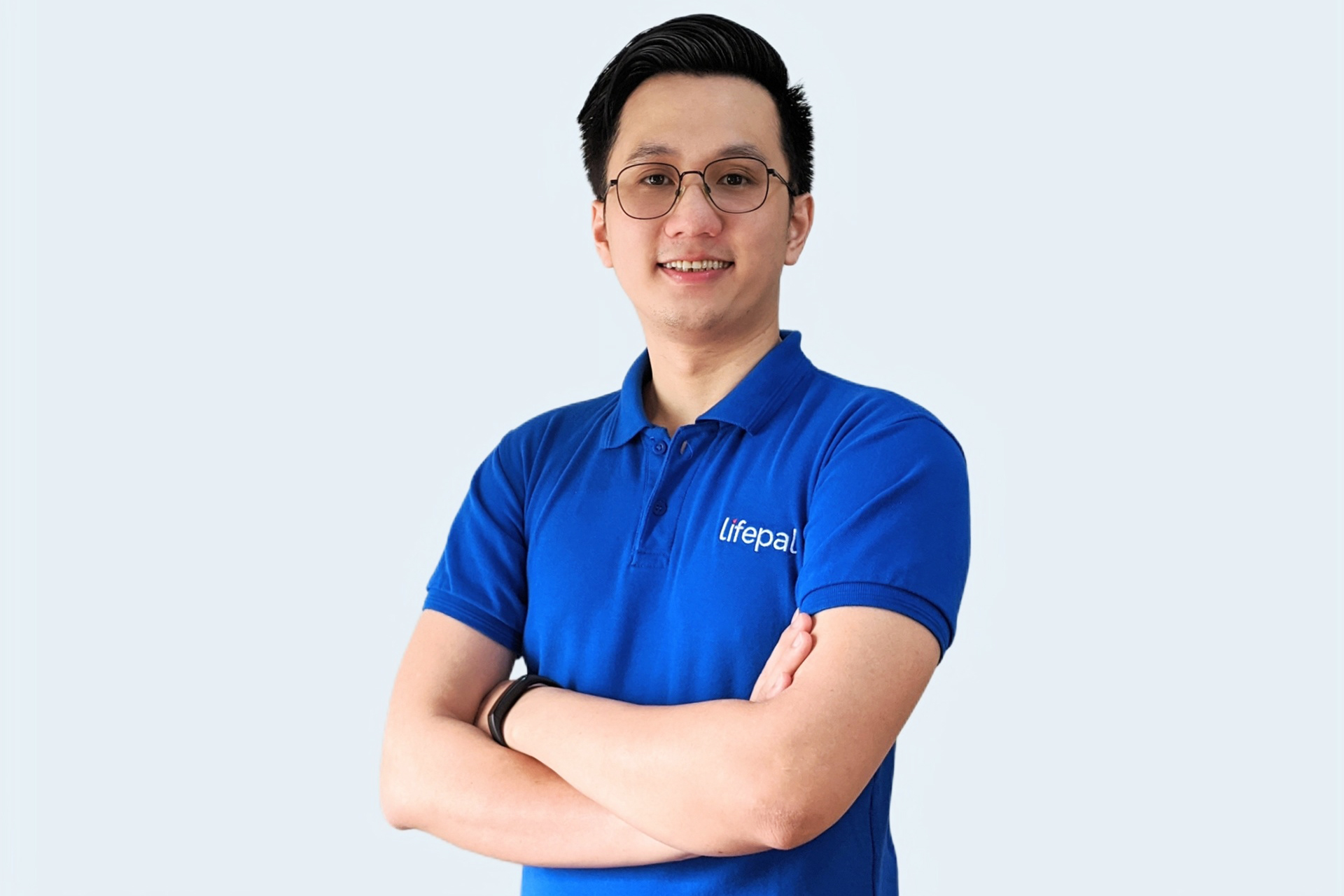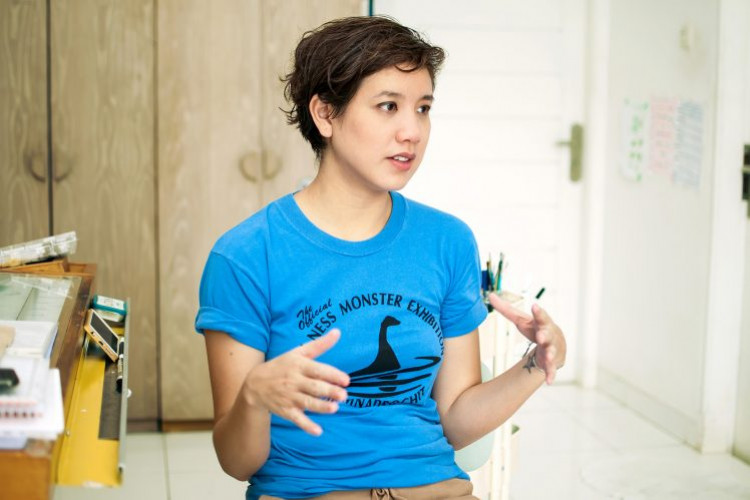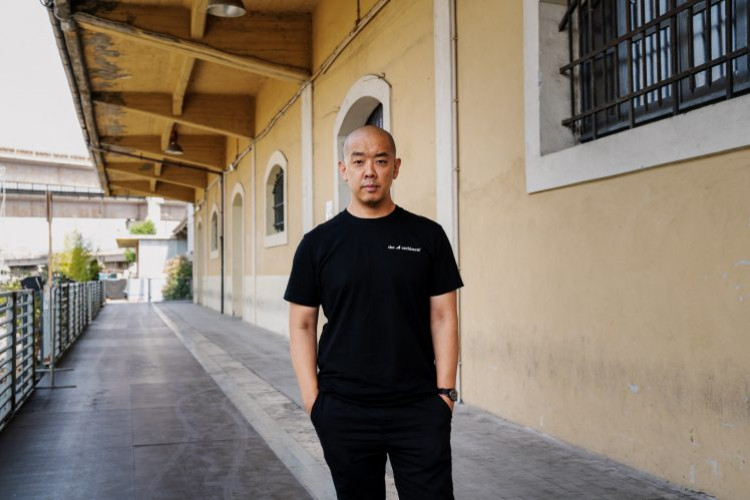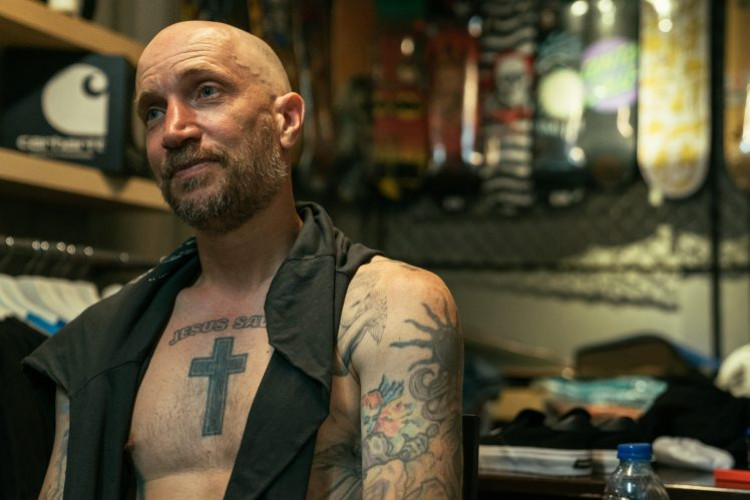
On Financial Literacy, Insurance, and Investments for the Youth with Lifepal
We spoke to Benny Fajarai, one of the co-founders of Lifepal, to discuss the democratization of knowledge on finance, the difference between insurance and investment, and Indonesia’s growing insurance literacy.
Words by Ghina Sabrina
As the topic of financial planning has become increasingly popular these past few years due to the rising middle class and supported by technological disruption, we now have the luxury of choice. With new and existing startups finding creative ways to educate the market, talking about money has entered the topic of everyday conversations. We spoke to Benny Fajarai, one of the co-founders of Lifepal, to discuss the democratization of knowledge on finance, the difference between insurance and investment, and Indonesia’s growing insurance literacy.
Could you tell us about the beginning of Lifepal?
It all started from one of the co-founder, Giacomo Ficari. He’s our CEO, an Italian and ex-Lazada and he had the idea after doing research on the industry. When he was trying to lock on the idea, he researched the industry on insurance and he figured out that Indonesians are underinsured as the ownership of private insurance is under 2% while the growth rate actually is very high. We are one of the highest in the world and at that time it was almost equal to the other developing countries like Brazil when it comes to growth of insurance penetration. It’s around 2 digits per year. So, it’s very low penetrated, high opportunity because the growth is very high. So it started from there, and then continued by talking to the other co-founder, Nicolo Robba. Also previously in Lazada, Nico’s based in Thailand. He then met me through mutual investors at the time, and then we met the fourth co-founder, Reza Muhammad from Orami.
All 4 of us were e-commerce people, and we were the first ones during the early days of the tech scene where e-commerce was very booming during 2012-2019. So as e-commerce practitioners, we know that the problem always lies either in access, such as ease of shopping, information and directory; inventory, such as the ability to buy, select on options; and then the last one is service.
So based on that we decided that maybe we need to focus on certain verticals which is health insurance at that time. Little that we know, it grew into a bigger category and now Lifepal offers a variety of insurances from health, life, car to many others. We tried to solve many problems in the beginning and then we become the most complete inventory when it comes to insurance in Indonesia.
What Lifepal is now, it’s an insurance marketplace from end-to-end where we educate the market using our content, our digital marketing efforts, to convince them, get them to understand, choose and compare the products, buy the product easily, and eventually use the products. It’s a very end-to-end kind of process and we hope to own the customer and gain their trust because we provide the full service.
Lifepal is also a financial media that provides educational content. By using an approach that is simple and easy to understand, how do you see the knowledge gap about finance between generations?
We pretty much lack the guidance from our parents when it comes to technical knowledge on managing money.
The reason why financial topics are very interesting and becoming a media darling during the last 2 years is because the middle-income class is growing. Now that people, our generation, have more money and they earn more money than their parents, the middle class is booming. Another case is that we pretty much lack the guidance from our parents when it comes to technical knowledge on managing money. So this generation is the first generation that is finally interested and at least has the money to manage. While maybe the previous generation was thinking more about their career and earning money as a top priority, now it’s more like, “Earning money wasn’t that hard anymore, how do we manage it?” So therefore, if back in the day nobody talked about certified financial planners, now more people are getting a lot more knowledge about it and thus require professional practitioners for it, therefore a lot of players start coming up.
With the help of technology, paired with an increase in curiosity, it then makes it a lot more accessible for startups to educate the market. And with this joint effort, things are moving a lot faster.
The reason why we are doing this, it’s because we don’t see any separation between how we educate people about insurance and how we educate people about finance as it’s an inseparable concept. So when we talk about insurance, we also need to manage our money correctly. But in order to educate people about this we need to tell them the whole process, therefore we just carried out to approach them with personal finance instead of just insurance.
The insurance literacy rate in Indonesia is still low when compared to the global average. In your opinion, what are the reasons behind the knowledge gap in insurance in our society?
First, let’s compare to Southeast Asia where the insurance penetration rate is 3.5%. While Thailand is at 5%, Indonesia 2%, then what’s wrong? I think there’s something about our culture that brings the effectiveness of distribution through agents. Here, the mouth-to-mouth strategy is very effective. We know that by seeing MLM (Multi-level marketing), insurance agents, all these grassroots marketing techniques have been proven to be powerful in Indonesia. Because it’s powerful, it’s of course normal that it becomes a major driver of insurance products in Indonesia. Since it’s designed to use an agent, it then has to incentivize the agent with something, which is commission. And the biggest commission is Unit Link products, which offers investment plus insurance. Because it keeps on being offered and introduced that insurance has a correlation to investment, a lot of people then understood that insurance and investment is in one package of a product. So if you are not interested in investment, or you think that you don’t have much money to invest, then you can avoid the topic of insurance. But if you’re disappointed with the insurance or the investment, you also avoid the topic. And of course, another factor, if you have a bad experience because you don’t like being approached by an insurance agent, you would also avoid that topic. So, because of the avoidance of the topic, for some accumulated reason, the knowledge gap has increased.
Meanwhile, in the other parts of the world, it’s just dumb to not have any insurance. In the USA, they wouldn’t even admit you to the hospital. Same thing applies to Singapore and Japan, it’s just crazy to not have insurance. So no doubt that insurance is important, but people are avoiding it. Lately, people are starting to understand its importance and asking about how they can get better information about insurance. And we provide that gap. You don’t have to meet a person to get an explanation, but you can get all this information for free until you’re ready to buy it.
So far, we are more accustomed to transacting for insurance in a more traditional manner. This practice is often not on the side of the customer, but rather on the agent and insurance they represent. What is your response to this?
So the best way to buy a product is, of course, you understand the product and then you have an objective comparison.
Without being generalizing, I don’t want to say that agent distribution is wrong. It’s definitely very effective and it’s the best way to reach out to the grassroots market. But for sure, when you rely on a person, there’s a good sales guy that is thorough and honest, and there are those who are tricky and sales-driven. It really matters on a good understanding of the product, which would lead to expectations. So the best way to buy a product is, of course, you understand the product and then you have an objective comparison. If you say, “This is what I need, this is my problem. What is the best solution?” If the answer is incentivized to sell a product, it may not actually get you the best product because they may not have the best product. So, that’s the cons of going one-by-one, speaking to a seller of a certain product. The solution to that is you go to a place where you can see all the products, then fit in your problems and your needs to those products. That is why a marketplace model like us actually brings a huge value to the market by showing all these options objectively. You just compare based on your budget and your profile without any third party. So that is a problem we’re trying to solve.
Insurance and investment are two topics within financial management. However, many are still confused about the proportions that each individual should give to these two things. What advice can you give them?
The first step in managing money is to make sure that we are free from financial risks. So before anything else, when we have additional money to spend, we should secure our assets by buying insurance. Insurance in principle is a cost to mitigate risks. We should not expect any return, we’re just saying, ” I would rather pay a small amount of money so that I am free from the risk of losing a big amount of money.” Everybody has to separate themselves from the mindset of trying to gain from insurance. You don’t gain from insurance, but you are preventing yourself from losing big from not having insurance. Let’s say you pay a premium of Rp 500,000 or a million per month, and you say, “What if I don’t claim it?” Don’t see it like that, if you don’t claim it, it means you’re healthy, and you’re fine.
The first part is to allocate that salary, at least 5%, to get decent insurance. If you already get it from the office, or you have a government-managed insurance such as BPJS, then you can make sure that there are other risks that are not covered, like critical illness, and then you could top-up your insurance to cover your needs. For example, if you have a dependent child and your wife is not working, then you need a life insurance. Maybe your office provides you with health insurance, so then you could buy your own life insurance instead. Or if your office provides you with Rp 500,000 for room cost per night in the hospital, but you wanted something more, maybe a private room that costs you a million, then you top-up the rest of the cost with a cheap insurance.
So it’s normal to have more than one insurance?
Yes. Insurance is basically plug and play. We have some ready products that can complete your current insurance or a full product as your first insurance. Now that we’ve talked about the 5% for insurance, what about the rest of the money? If you see the Indonesian or Asian culture in general, we actually have a big portion of our money to be saved. We’re typically frugal people, so we have a big portion to be saved. If you earn money, and you are not part of the middle class or middle-high class income, at least try to save 10% of your income. If you earn provincial minimum wage (UMR), at least try to save 10%. But is there a maximum? Actually nothing, no maximum amount. If you want to save 90% and be super thrifty, it’s okay. Everybody has different goals in life.
With this first 10%, you need to cover for your liquidity assets, cash. Make sure that at least it can cover you 3 months of your spending. And then after that, the surplus from that 3 months expenses savings ready in the bank, you put that in investment. So the more you have on investments, the better. Why? Because that money will not be eaten by inflation. It’ll continue to grow. So let’s say you save it in the bank, just a regular bank, you’ll get 0.5% interest a year. Seeing that the usual inflation rate is 2%, of course your value can go down. Especially if you have cash that you put in your bed or in your cupboard, it wouldn’t go anywhere.
So, more than the 3-month period, put that in a good investment portfolio. It can be in a form of short-term investment such as deposito, sukuk, ORI (Obligasi Negara Ritel), or you put that in a medium to long term investment that has some risk but also gains like stock market, gold, or something else. Or you could join a mutual fund that is trustworthy. Or you could also buy property. But in the end it all depends on what your expectations are. That’s how we see insurance and investment, two different things with different budgets.
You don’t gain from insurance, but you are preventing yourself from losing big from not having insurance.
How about Unit Link, where it consists of investment and insurance?
On that part, so Unit Link is basically a combination of two things, insurance plus investment. So, when you say it like that, it’s actually very logical. If you can get two things with the same benefit combined as one, of course you’ll go for it. But if you say, “I can get a better insurance and I can get a better investment separately,” why would you combine those two? It’s a very case-by-case level. In some cases, you would be committed to investment but you need insurance, so you’d just buy insurance instead. And every year, you could renew a new brand because you could take a better one. If you say, on the investment part, if you see mutual fund A is better than the mutual fund from the insurance, why would you join the mutual fund from the insurance? So at the end, it’s more of a calculation of which one is better. If so happens that two combined is better than any of them, go ahead.
Insurance consists of several types, such as health, life, home and car. What are the essential things new customers should know when they’re thinking of getting one?
The type of insurance depends on every person. Everybody needs health insurance, but it depends on how well-covered they are at the moment, whether they get it from the company or somebody else, for example his/her husband already works and already provides health insurance, then it means it’s covered. But life insurance is when you have somebody rely on you as a breadwinner or maybe as an additional income to the family. For example, if I’m married with one kid and both of the parents actually work, when my wife loses her job, I can still pay for the family. But if I lose my job, my family will suffer financially, so that means I need to have life insurance. In this case, life insurance means that if I die, the family won’t suffer financially. It really depends on each family, whether the breadwinner is highly dependent or not for the financial status of the family. Because when you die, it’s not just an emotional burden, but also a financial burden, and it takes one-to-two years for the family to recover. Life insurance is designed for that.
Anything can be insured. Our house, apartment, maybe some factory tools, our car or motorbike, it really depends on how much it’s worth and how much the risk will be. I think it’s pretty common in Jakarta to have your car insured with an all risks insurance because it’s very likely for it to get damaged.
Now that you know the products, how do you choose your insurance? The first part is the brand. Go and search around, see whether they’re trustworthy from how the testimonials are from the previous customers. Read around, see how they give their service. The second part is on the product benefits, are the benefits well-suited for your needs? Benefits depend on the product, it basically gives you how much cost will be covered. So if you are buying health insurance, you want to check whether they cover the surgery, room cost, or any other needs. And for life insurance, it’s called ‘uang pertanggungan’, which means it has to be able to cover for your family’s needs for a period of time. Let’s just say, I know that if I lose my job or if I pass away, my wife needs a year to recover. If my family needs 10 million per month, that means the insurance has to cover 120 million for one year. That’s just a basic calculation.
Then, what about car insurance? Usually, cars have a very fixed rate, so the benefits are just more of an additional service. Do they give you an emergency or replacement car? The last part, we could then talk about price or budget. Pick the one that matches your budget. There’s a saying that the best insurance is relative, the cheapest insurance is the worst. Because it probably gives you pretty bad coverage. So sometimes a lot of people are kiasu, so they just get the cheapest one. But it’s not enough, that’s why I said, you go with the coverage first, so you know how much you need. You don’t need to cover as much as possible because the reality is that it’s going to be very expensive, you just have to cover what you need and then check which is the cheapest one.
What advice would you give to young people who want to start buying insurance? What should they consider and also avoid?
The nice thing about insurance is that the younger you are, the cheaper it is.
The nice thing about insurance is that the younger you are, the cheaper it is. The older you are, the more expensive it is. It is because of the morbidity and mortality table, meaning that the older you are, the bigger the risk to get hurt, to get sick. So, when we are young, insurance is cheap, and you don’t need to have too much coverage because chances are you’re not really going to use it unless you’re involved in some risky things like mountaineering. The basic thing is that it covers you for at least basic hospital needs. You don’t have to go for a VIP room, at least it covers you for what you need. When I was a first jobber, my first insurance cost me Rp 300-400 thousand only, which was around 10% of my salary at the time. That means it’s enough to cover for a sharing hospital room and that’s good enough. And actually when I was there, I got an appendix surgery, and I didn’t need to pay the total bill which was around 3-4x my salary. I only had to pay Rp 5 thousand because wet tissue wasn’t covered by insurance. It was a comedic outcome eventually.
That is one case in which I knew I earned very little as a first graduate, but having insurance really freed me from that risk of losing 4 months of salary. So start small and just go with the basic needs of coverage.
How do you see the changes in behaviour during this pandemic?
We are expecting the insurance industry to grow during this pandemic.
We are expecting the insurance industry to grow during this pandemic. It used to go down a little bit during lockdown because as I said, the majority of insurance sales were driven by offline agents. But for Lifepal, it’s been growing lately because we do it online and people have the time to browse around. But for the industry, it used to drop in May and June, but now it’s recovering even stronger compared to last year. The reason for this is because people will hopefully realise that things can go very wrong unexpectedly. And because of that, it becomes easier for us to convince them that they actually need insurance. Hopefully this also changes the mindset that they need insurance as a risk-mitigation strategy, not just as an investment.
Do insurance cover COVID-19-related illnesses?
Before it was declared as a pandemic, when it was still an epidemic, it was covered by insurance. But now, it’s covered by the government. Also, the death of COVID-19 patients is still covered by life insurance.
What are Lifepal’s future plans?
We’re trying to reach more people to be educated by our content. We are currently the most followed insurance and personal finance account on Instagram. We’ll continue to do more outreach, trying to educate the market in many ways possible. That’s why we’ve been generating content, pitching to the media, doing all these partnerships because we understand if we invest in education then people will eventually make the right choice. We are the right choice. That’s the nature of it. It’s just that we have a big homework to make people realise that certain things are important and when they realise certain things are important, they will strive for quality and we are going to be there when they need quality services, inventory or options. So, we’re looking forward to reaching more people and talking more about what is important for their lives.











